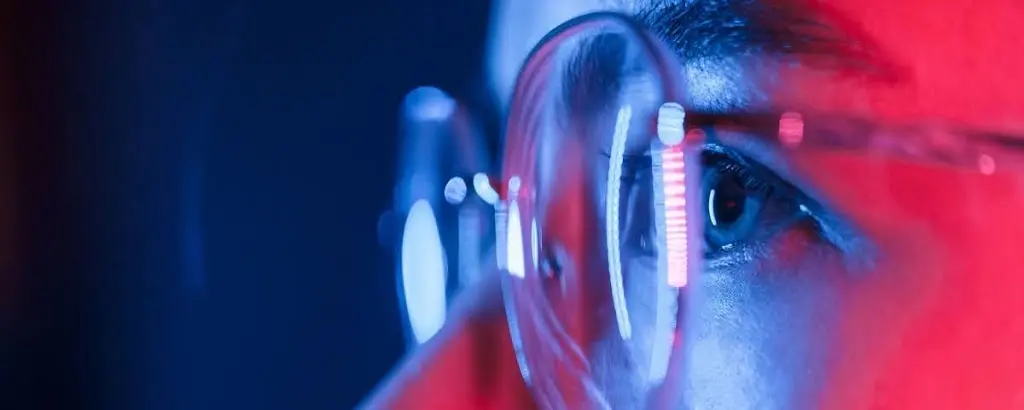Your eyes feel tired and scratchy after another long day at the computer. That familiar burn sets in as you squint at the screen, trying to power through just one more email. We’ve all been there, fighting through eye strain while our screens shine brightly in our faces. What you might not know is that this discomfort comes from something called blue light exposure, and it affects way more than just your eyes. Once you know what you’re dealing with, you’ll be glad to know that there are lots of ways to protect yourself and get back to feeling good again.
What Exactly Is Blue Light?
Blue light is part of the visible light spectrum that comes from the sun, but nowadays, we get tons of artificial blue light from our phones, tablets, computers, and LED lights. Think of it like the energy boost you get from bright morning sunlight. It’s great during the day, not so much at night when you’re trying to wind down.
Your body uses blue light as a signal to stay alert and awake. When blue light hits special receptors in your eyes, it tells your brain, “Hey, it’s daytime!” This worked perfectly fine before we had screens everywhere. Now, we’re bombarding ourselves with artificial blue light at all hours, throwing off our natural sleep-wake cycle.
The tricky part is that blue light is actually pretty sneaky. You can’t always tell how much you’re getting just by looking at a screen. But your body sure notices it, especially when it comes to your sleep schedule.
How Blue Light Messes With Your Sleep
Disrupting Your Natural Clock
Your body runs on an internal timer called your circadian rhythm. Blue light exposure, especially at night, can throw this whole system out of whack.
Suppressing Melatonin Production
When you get too much bright light at night, your body doesn’t make enough melatonin — the hormone that helps you fall asleep.
Creating Sleep Onset Issues
Ever notice how hard it is to drift off after watching videos in bed? That’s blue light keeping your brain wide awake.
Reducing Sleep Quality
Even when you do fall asleep, too much earlier blue light exposure can make your sleep less restful.
Leading to Sleep Phase Disorders
Over time, constant nighttime blue light can lead to delayed sleep phase disorder, where your whole sleep schedule shifts later and later.
The Health Effects of Too Much Blue Light
Going beyond just poor sleep, too much blue light takes a real toll on your body. Your eyes feel strained and dry, headaches pop up more often, and you might notice yourself feeling more anxious or moody. Studies and randomized controlled trials show that excessive exposure to blue light throws off sleep efficiency and sleep duration.
The effects build up over time, too. When you don’t get good sleep night after night, it starts affecting everything from your immune system to your mental health. Plus, that constant eye strain can lead to bigger vision problems down the road.
Simple Ways to Protect Yourself
Let’s talk about some easy fixes you can try right now. Blue light-blocking glasses are a great start, as they filter out harmful rays while letting you keep using your devices. You can also adjust your screen settings to reduce blue light exposure, especially after sunset.
Taking regular breaks from screens helps, too. Try the 20-20-20 rule: every 20 minutes, look at something 20 feet away for 20 seconds. This gives your eyes a much-needed rest from that intense artificial blue light.
Installing apps that automatically dim your screen’s blue light as evening approaches can make a big difference in your sleep quality, too. Some phones even have this feature built right in!
Want Better Sleep? We’re Here to Help
Next time you’re dealing with tired, strained eyes or having trouble sleeping, know that you’re not stuck just putting up with it. Nirvana offers plenty of treatments and solutions to help you deal with the effects of blue light exposure and other conditions impacting your sleep quality. We can even help you treat sleep apnea. When you’re ready to find solutions for blocking nocturnal blue light, or just want to know more about how blue light affects your sleep quality, reach out to Nirvana. We’re here to help.

